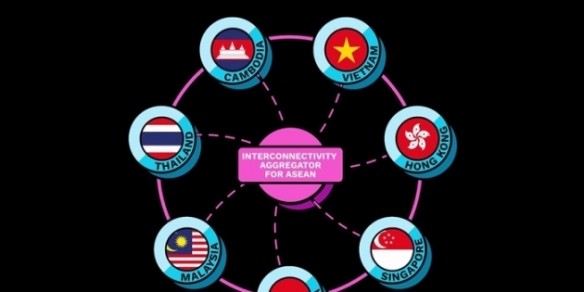Making Malaysia a Smart Nation
By Fabian Bigar September 26, 2022
- Transformational journey to be Smart Nation is a whole-nation approach
- ‘Accelerating Digital Transformation’ expo at MITEC from 27-29 Sept

 Malaysia, since the early 1990s, can be said to have undertaken several whole-of-nation transformations. These were largely driven by and were part of the global digital revolution of that era, also known as the Third Industrial Revolution.
Malaysia, since the early 1990s, can be said to have undertaken several whole-of-nation transformations. These were largely driven by and were part of the global digital revolution of that era, also known as the Third Industrial Revolution.
The country’s Federal Government of the time established a National Information Technology Council (NITC) under the Sixth Malaysia Plan (1990-1995) to ensure the Information and Communications Technology (ICT) was integrated in the socio-economic context.
Next, the National Information Technology Agenda (NITA) was formulated under the Seventh Malaysia Plan (1996-2000), to realize the core objectives of NITC. Additionally, the NITA acted as a key catalyst in transforming Malaysia into a value-based economy, through the development of talent, infrastructure, and applications.
It was also under the 7MP that the famed Multimedia Super Corridor (MSC) Malaysia projects were launched. The objective was to turn Malaysia into an innovative hub for multimedia technology producers—which was in line with the objectives of Vision 2020.
In essence, Malaysia sought to move from a production-based economy (P-economy) into a knowledge-based economy (K-economy). Meanwhile, the National Broadband Plan was formulated under the Eighth Malaysia Plan (2001-2005) to ensure connectivity throughout the country. The subsequent Malaysia Plans focused on ICT talent development, information security and today’s focus on building and turning Malaysia into a smart nation.
Recently, the Government has put out the Malaysian Digital Economy Blueprint (MDEB) under the Twelfth Malaysia Plan (2021-2025). The MDEB outlines action plans to realize Malaysia’s vision as a regional pioneer in the digital economy while achieving inclusive, responsible, and sustainable socioeconomic development.
The Blueprint consists of six strategic thrusts, 22 strategies, 48 national initiatives and 28 sectoral initiatives to drive the growth of a digital economy that will have generate positive multiplicative effects on the Rakyat, Business and Government. Indeed, it is arguably the culmination and climax of the efforts contained in the previous Plans.
What becoming a Smart Nation means for Malaysia
Despite the turmoil of Covid-19 and other crises, we are currently at the greatest juncture of human history, fuelled by new technological frontiers. Properly mastered, big data, artificial intelligence (AI), Internet of Things (IoT), robotics, cloud computing, automation and data analytics will fundamentally transform the global economy and the way we live.
The development of digital technology presents opportunities for our country to enhance its strengths whilst overcoming natural challenges and physical limitations as well as technological disruption. Adaptability to these technology changes will determine our success and ability to stay ahead in the technological race, which will be intense and likely determine which economies prosper or don’t.
Becoming a Smart Nation is also an integral part of nation building. By transforming Malaysia through seamless technology, people’s lives can be empowered because they will be more easily plugged into exciting opportunities—such as better healthcare, dynamic and industry-relevant education and higher business volume and productivity.
In Malaysia’s case, the three pillars that will support the formation of a Smart Nation are digital economy, digital society, and digital government. In fact, you could say that these three pillars define what being a “smart nation” is, namely that we should emerge with or as a:
Digital Economy – utilizing the latest technology for digital transformation to drive business growth. This would then attract foreign investments, as well as spur job creation and opportunities in the country, including for rising tech talents.
Digital Society—a modern and progressive society that is formed through the integration of advanced ICT. This can be done by improving digital literacy and making technology more accessible to all Malaysians.
Digital Government--designed and operated to take advantage of digital data and technology to create, optimize and transform digitally-enabled government services securely, reliably and seamlessly. This will largely benefit the rakyat, businesses and the public sector itself.
Malaysia’s transformational journey to become a Smart Nation is a whole-nation approach which requires all stakeholders, even down to the ordinary rakyat to work hand-in-hand to ensure its success. Therefore, we need to invest in technology and connectivity infrastructure as well as strong institutions so we can grasp this golden prospect to propel Malaysia forward.
As part of efforts to disseminate greater information and understanding on the Smart Nation, a three-day expo with the theme “Accelerating Digital Transformation” will be held at the Malaysia International Trade and Exhibition Centre (MITEC) from 27-29 September 2022. The event will highlight 10 key zones including smart energy, smart communications, smart manufacturing and IR4.0, smart government, smart energy, smart mobility, smart security, smart building, smart healthcare, and smart education.
I strongly encourage you to visit https://smartnationexpo.org/ for more information.


